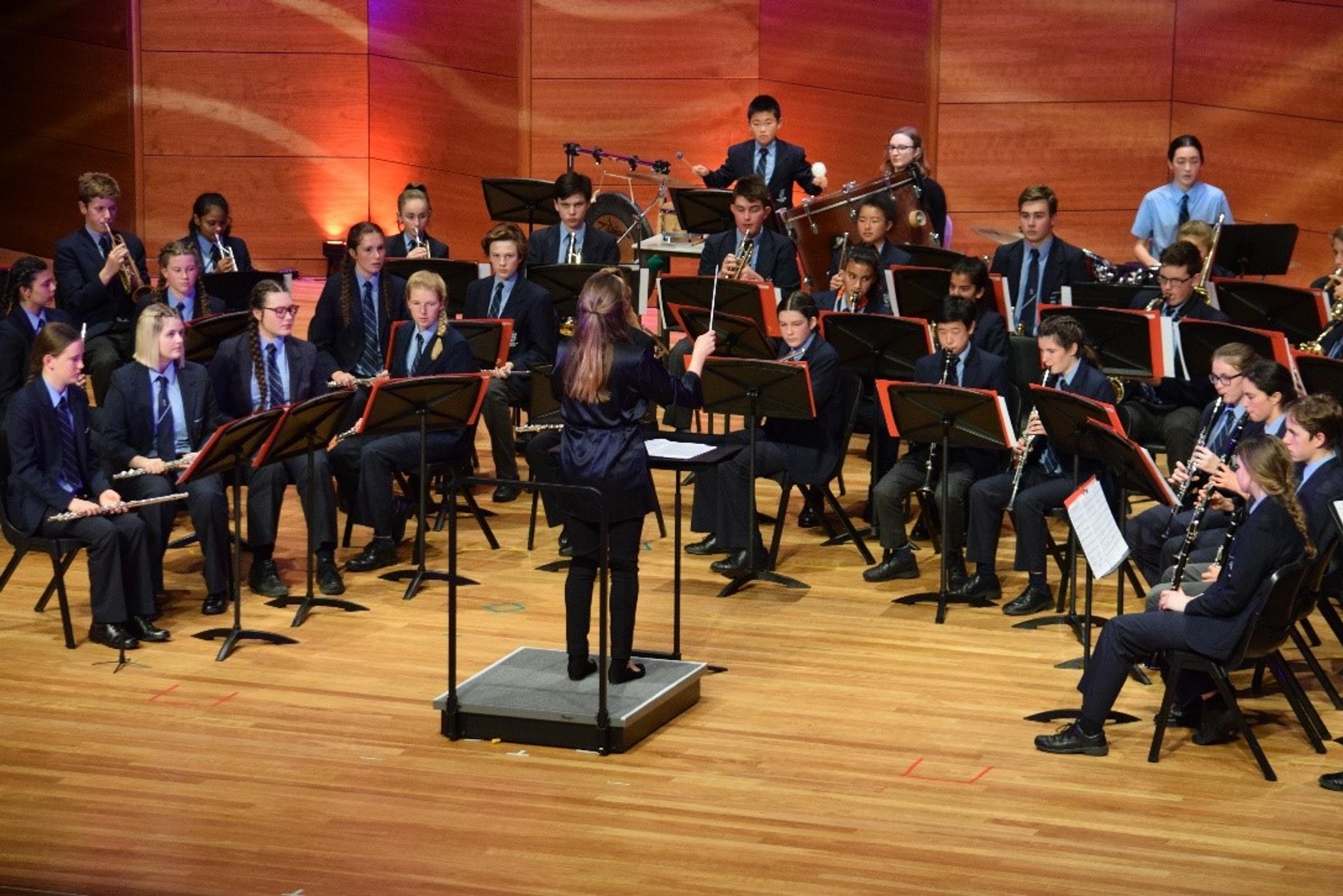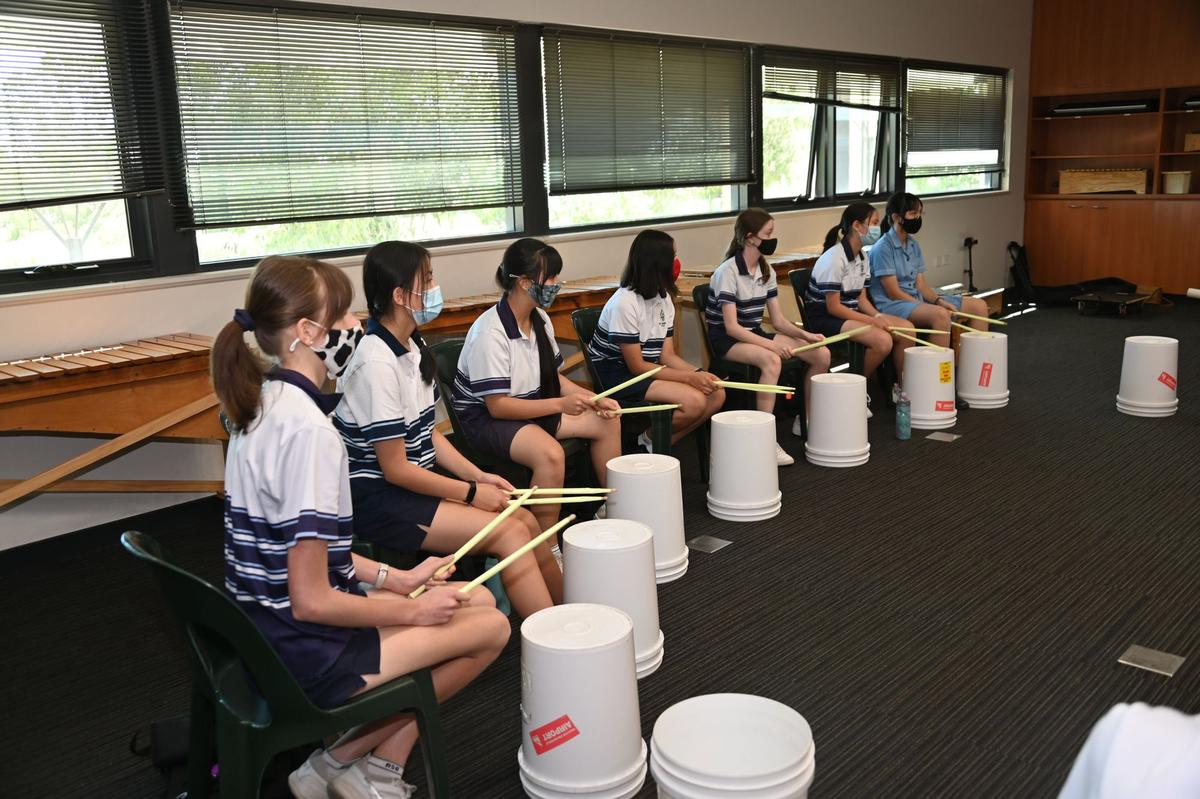MUSIC - CURRICULUM OPTIONS

“Music education does not just make children more musical; it unleashes their creative powers.....We learn music because it is good. We learn music because it is unique. We learn music because it stimulates creativity at a very high level” - Richard Gill
Developments in Neuroscience have allowed us to understand that the study of Music has wide ranging advantages for a developing brain. This is powerful knowledge, but it only adds to the reasons why it is important to study Music. As a form of self-expression and high-level creativity as well as a phenomenon that surrounds us every day, developing an understanding of Music helps a student to work in the abstract, to listen and to understand the world around them.
YEAR 9 MUSIC
The Year 9 Music is a year-long course that begins a path of study that can take students in a variety of directions including an eventual pathway to ATAR Music study.
The course covers study in different musical contexts, performance and practical, composition and aural and music theory. It is a skills-based course where students are encouraged to work independently and to learn to collaborate creatively.
Each unit of study throughout the year contains four key learning areas:
- Practical Music
- Music Theory and Aural
- Solo Performance
- Composition
These learning areas will be viewed through the lens of different musical contexts, including Western Art Music and/or Contemporary contexts.
Through the study of these areas, students will develop a deepening understanding of the elements of Music, and this will help them to understand a broad range of contexts.
PREREQUISITE:
Students need to be learning an instrument (or voice) as this will support them in their solo performance assessments. There is no minimum level of experience, only the willingness to practice and commit to improvement on an instrument.
Participation in the Music Ensemble program is also highly recommended, with attendance at College Choir suggested as the most beneficial area for developing skills in musical literacy, sight-singing and aural skills.
YEAR 10 MUSIC
The Year 10 Music course follows logically from the Year 9 course. For this reason, it is highly recommended that students complete Year 9 Music in preparation for Year 10.
The structure of Year 10 Music is similar to Year 9, due to the skills-based nature of music learning. The skills that have been acquired in earlier years will be drawn on and developed across the four key learning areas of Practical Music, Music Theory and Aural, Performance and Composition.
The contexts covered in the Year 10 course will be different from those taught in Year 9 and will be tailored to the individual needs of the students, allowing for a more individualised path of study beyond Year 10 if necessary.
PREREQUISITE:
Students need to be learning an instrument (or voice) as this will support them in their solo performance assessments. There is no minimum level of experience, only the willingness to practice and commit to continued improvement on an instrument.
Students should have completed the Year 9 Elective course, however admission to the Year 10 course may be approved without this at the discretion of the Director of Music.
Participation in the Music Ensemble program is also highly recommended, with attendance at College Choir suggested as the most beneficial area for developing skills in musical literacy, sight-singing and aural skills.
